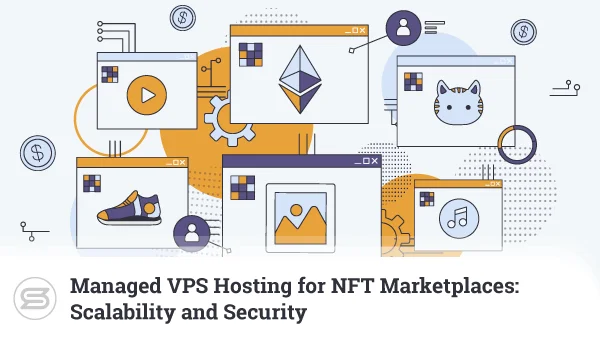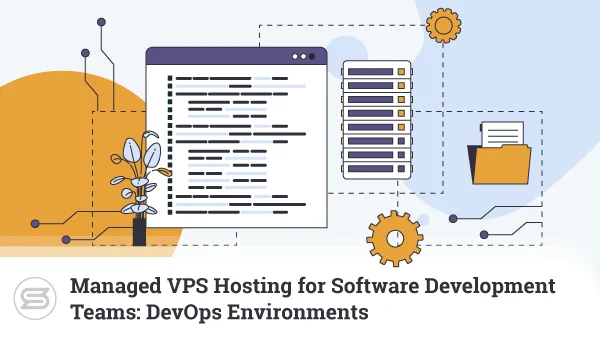There are over 400 million active websites in the internet ecosystem, ranging from small one-pagers to massive multimedia databases, storing hundreds of gigabytes of data. While the average site owner can usually get enough resources and support from a shared host, growing their project will often find them looking for a more robust and secure environment. The need for better performance and more control will inevitably bring them to two of the most popular services out there — VPS hosting and dedicated servers.
- What do the two hosting solutions encompass?
- What are the advantages and disadvantages of virtual servers and dedicated platforms?
- What is the VPS best for? How about the dedicated hosting service
Those are just some of the questions we will try to answer today.
Let’s get right on it.
What is VPS hosting?
The typical shared server can house over 100 hundred customers, each draining its physical resources and putting a load on the machine. It might be a suitable configuration for a smaller project, but growing up, you will quickly find the environment insufficient.
That’s when you should start considering VPS hosting.
Virtual private servers are the next logical step when you need better website performance and more control over your account. Your host splits a physical server into a few separate instances through a process called virtualization. This way, client accounts are completely isolated and can’t interfere with each other’s smooth operation.
Depending on the level of control you expect, you can opt-in for managed or unmanaged servers.
Managed VPS — both you and your host have access to the server
The provider takes care of the initial setup, OS installation, security add-ons, maintenance. Most of all, you have the host’s support assisting you every time you have a problem. Best-suited for clients with less technical knowledge or startup businesses.
Unmanaged VPS — you get full root access to the server and can manage it as you wish
The host supplies the physical machine and takes care of the very basic setup. From there on — it’s all up to you. Whether you want to host a game server, an app project, or a media-heavy video channel — you are only limited by the resource caps on your account. The ideal choice of web developers, server administrators, or businesses with a dedicated IT team.
VPS Hosting Advantages
VPS solutions are getting more and more popular today, and there are solid reasons behind that process.
Increased Flexibility
Virtual servers are much more powerful and versatile than the standard shared account. As there are very few clients on the VPS machine, each gets tons more resources to start with. But that’s just scratching the surface. Virtual solutions come with administrative access, so you can do all kinds of tweaks and customizations on the server. You can install your own software and apply extra security measures as well.
Enhanced Scalability
Not only do VPS solutions come with an isolated server environment, but they give you the power to adjust resources on-the-go. Running out of space? You can just add some extra storage.
Preparing a great marketing campaign? You can sure use some extra bandwidth to cover the growing traffic needs. This immense scalability is key for small and mid-sized businesses to balance their website performance and IT budget.
Round-the-clock Support
No matter how experienced you are, there’s always a chance you will run into an issue that could use some extra helping hands. Virtual servers often house mission-critical websites where every minute of downtime can be very costly.
Managed VPS solutions come with the expert support of your provider’s well-trained operators. They are often 24/7 available through an internal ticketing system and respond within minutes.
What are Dedicated Servers?
This is pretty much the last step in your hosting journey. Your web project has outgrown the confines of a shared, VPS, even a cloud account. You want something bigger and more powerful…something for your needs alone.
Dedicated hosting services secure an entire physical server and all its resources to serve a single client. The provider rents the hardware from the data center, applies some basic setup, and leaves you to operate as you see fit.
You can install your own operating system, run a custom software, secure the server with an intricate configuration.
Dedicated hosting platforms require some technical expertise, though. As you’re the de-facto owner of the server, you are the one responsible for keeping it operational. The hosting provider can help with some connectivity issues, but any other extra assistance is quite limited.
Dedicated Server Advantages
Despite all the responsibilities that come with dedicated server hosting, this type of service comes with some undeniable benefits.
Full Control
All bets are off when you rent a dedicated server. You can utilize the full capacity of its CPU, RAM, storage space, and bandwidth. You can also install any OS or software on it — there are no limits to the extent of your capabilities.
Maximized Performance
Even on a VPS where there are just a few clients, they are still fighting for the same server resources. A dedicated server solution means your website is the only one taking advantage of the CPU power and system memory. Additionally, you can scale resources if you find any of them insufficient.
Enterprise-level Security
All hosting services are more or less secure, but shared solutions often come with a standard security configuration. Dedicated servers, on the other hand, are as strong as you can make them. Provided you have the right knowledge or assistance, you can equip your platform with industry-leading tools for DDoS protection, malware, and virus attacks.
Scala Hosting Cloud VPS Servers
If you’re at the stage of finding a reliable virtual server provider, you can look no further than Scala Hosting. The performance-oriented host offers both unmanaged hosting and managed cloud VPS with some value-added features in store. Aiming to elevate the whole industry, Scala Hosting is betting on a unique set of tools for optimized server management.
SPanel is Scala’s direct answer to cPanel’s dominance in the hosting industry. The tool introduces a user-friendly interface with advanced functionalities while cutting on all the extra costs for licensing fees.
You can get more information on SPanel here.
Conclusion
So, what did our VPS Hosting vs Dedicated Servers comparison reveal?
VPS solutions are better-suited for growing businesses that could use more control over an isolated environment. Clients can easily scale their system resources and get professional support at affordable monthly costs.
A dedicated server would be the best option for larger corporations and enterprises. You are the sole customer on the machine, so you have the freedom and flexibility to customize it for your purposes — a backup server, a game machine, or a home for high-traffic websites.
Many providers offer both services, so you can easily upgrade to dedicated hosting if you outgrow your VPS platform.
FAQ
Q: Which is better — VPS or dedicated server?
A: We can’t label one service “better” than the other, because they often serve different purposes. Getting your own dedicated servers is often an overkill and can easily cost more than $100/mo. In comparison, a VPS is great for mid-sized websites, but rarely enough for media-heavy or custom-made projects.
Q: Is a dedicated server worth it?
A: A dedicated machine is only worth it if you have exhausted all other hosting options. The service is often costly and requires some level of technical understanding to get the best of it. Still, some projects are very software-specific or large in scale, so a dedicated server might be the only choice.
Q: Is VPS shared hosting?
A: Although different services, VPS solutions are similar to shared in the sense, there are multiple clients on one physical machine. But that’s pretty much the only significant parallel. There are significantly fewer customers on a VPS, and their accounts are isolated through virtualization. This makes virtual servers faster, more secure, and more reliable than shared hosting.
What is a VPS – Everything you need to know!



